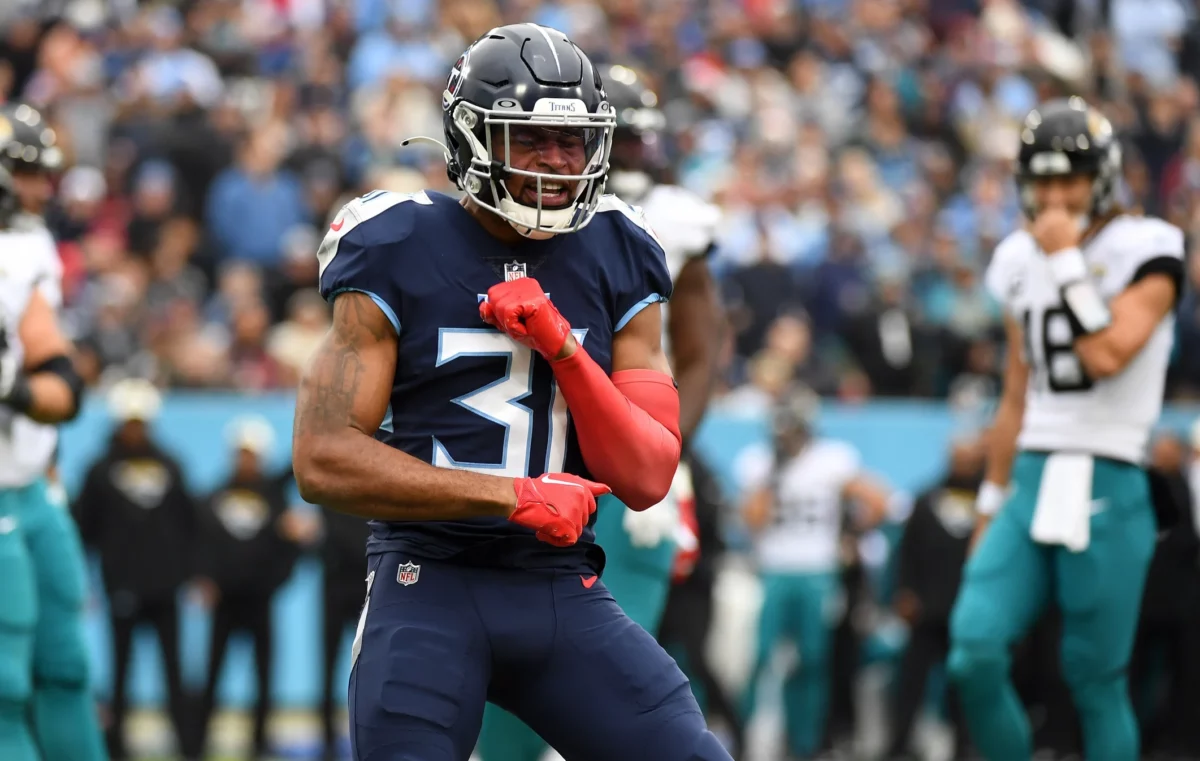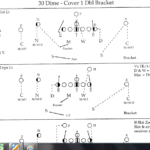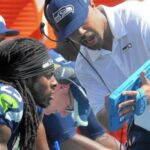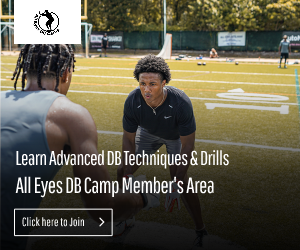If there was one “skill” that I favored over others from a player when I was coaching it was intelligence. Your brain controls everything else on your body when you are on the field. What good is running fast if you don’t know where to go? What good is being strong if you don’t know who to hit? Smart players also rise the level of play of all the other players around them. In this article, I will talk about seven sure fire ways for you to improve your IQ as a defensive back.
Improving your football IQ as a defensive back involves a combination of film study, understanding defensive schemes, recognizing offensive formations, and enhancing your overall football knowledge. Here are some tips to help you enhance your IQ as a defensive back:
1 – Film Study
Regularly watch game film of both your own performances and those of opposing teams. Analyze the tendencies and patterns of offenses, identify route combinations, and study the techniques and movements of successful defensive backs. Focus on understanding how offenses attack different coverages and how you can counter them effectively. Pay close attention to formations and split of wide receivers as they definitely mean something. Notice what teams like to do with certain players along with what routes the quarterback favors. Learning the tendencies gives you the power of anticipation which allows you to move faster on the field.
2 – Learn Defensive Schemes
Develop a deep understanding of your team’s defensive scheme and your role within it. Familiarize yourself with various coverages such as man-to-man, zone, and hybrid defenses. Understand the responsibilities of each position in your defensive backfield and how they work together to provide effective coverage. You have often heard me say to know where your help is. The only way for that to happen is to totally understand the defensive scheme. It isn’t enough to just know your job. Knowing what the other members in the pass coverages (both defensive backs and linebackers) are supposed to be doing will help you do your job better.
3- Study Offensive Formations
Learn to recognize different offensive formations and understand the potential routes and plays that teams tend to run from those formations. Pay attention to the alignment and positioning of receivers, running backs, and tight ends as they can provide valuable clues about the intended play. One of the most important things to understand is the pass protection. I am sure you really haven’t paid much attention to that in the past. Well it’s time to start doing that, it will help you understand what the offense has to do in the pass play. The number one job of an offense is to protect the passer. Think of it as the Queen on a chess board. For example, an empty set means the ball has to come out quick as there are less people protecting the quarterback.
4 – Communication and Pre-snap Reads
Work on your communication skills with your fellow defensive backs and linebackers. Effective communication helps ensure everyone is on the same page and reduces the chances of breakdowns in coverage. Learn to make pre-snap reads, anticipating potential routes and adjustments based on the offensive formation and alignment. A big part of knowing the defensive scheme and playbook is understanding how you will adjust to what the offense does. What is supposed to happen the offense sends a player in motion? What does the tight end going from one end of the formation to the other mean to your coverage? Sometimes you can start off in one coverage and end up in another once the ball is snapped. Understanding that makes you a more intelligent player and one that can be trusted.
5 – Seek Mentorship and Coaching
If possible, seek guidance from experienced coaches or former defensive backs who can provide insights and tips to improve your understanding of the position. They can help you refine your technique, provide feedback on your film study, and offer valuable advice based on their own experiences. This is one of the major reasons why I started the All Eyes DB Camp Member’s Area. It was to provide information and mentorship to people across the globe about playing pass defense. Take advantage of things like this. Take every opportunity to spend extra time with your coach getting up to speed on how the defense works and what offenses will try to do to attack it. If your coach is not available, seek the help of a trainer, former player or someone else otherwise knowledgeable about the game.
6 – Stay Updated on the Game
Follow football news, watch games, and read articles or books about football strategy and defensive back play. Stay informed about new trends, techniques, and developments in the game, as this knowledge can give you an edge on the field. Offenses are constantly coming up with new tweaks, tricks and schemes to get behind the secondary and score touchdowns. If you don’t stay informed then be prepared to get fooled. Keep your ear to the streets and find out what your opponent is up to. New routes, releases and combinations are always being cooked up to leave you fried on the field. Don’t get baked by something you could have seen coming if you spent a little time looking for it. Wide receivers and quarterbacks routinely hang out on my Instagram page and this blog spying on what we’re up to. Make sure you return the favor.
7 -Mental Preparation
Develop mental toughness and focus. Practice visualization techniques to imagine different game scenarios and anticipate your responses. Train yourself to read and react quickly to offensive cues and adjust your positioning accordingly. Remember, improving your football IQ as a defensive back is an ongoing process that requires dedication, study, and practical application. Continuously work on expanding your knowledge, refining your skills, and seeking feedback to become a more effective and intelligent player. Russell Wilson was clowned for practicing his pre-game routine even down to the high fives coming out of the tunnel. Russell Wilson is a $200 million quarterback that is also a Super Bowl champion. Drew Brees would go on the field by himself the day before a game and practice a while drive down the field. Some may call it corny but there’s nothing corny about something happening in the game that you already rehearsed and your body automatically moving into position to make the big play.
A smart player is a trusted player. A trusted player is where he needs to be when he needs to be there. What kind of player do you want to be? You have just been given the blueprint to becoming a high IQ defensive back. The answer now is what are you going to do with it? I know what a smart player would do.
Chad Wilson is the owner of All Eyes DB Camp and author of "101 DB Tips". He played college football at the University of Miami and briefly in the NFL for the Seattle Seahawks. Over his 15 year high school football coaching career, he tutored over a dozen Division I defensive backs and as a trainer has worked with NFL All Pros, first round draft picks, college football All Americans and Top 10 ranked high school football prospects.









